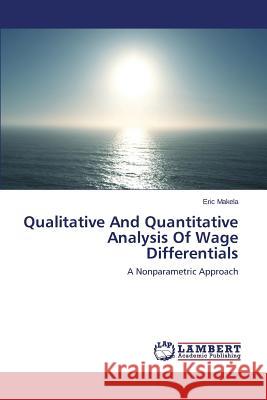Qualitative And Quantitative Analysis Of Wage Differentials » książka
Qualitative And Quantitative Analysis Of Wage Differentials
ISBN-13: 9783659616914 / Angielski / Miękka / 2014 / 136 str.
The vast empirical literature on wage differentials reflects extreme interest in the subject from economists, social scientists, and policymakers alike. A review of the literature reveals two noticeable shortcomings. First, nearly all past studies have assumed a linear relationship between earnings and worker characteristics without consideration as to the potential specification error this imposes on their estimates. Second, researchers have generally focused on simple mean effects rather than estimating the effects of characteristics and wage rates on earnings distributions as a whole. Using data from the American Community Survey, this book addresses both issues with a nonparametric approach which is simple to apply. The empirical sections apply the method to measure wage differentials between federal and private sector workers, as well as wage differences between males and females.
The vast empirical literature on wage differentials reflects extreme interest in the subject from economists, social scientists, and policymakers alike. A review of the literature reveals two noticeable shortcomings. First, nearly all past studies have assumed a linear relationship between earnings and worker characteristics without consideration as to the potential specification error this imposes on their estimates. Second, researchers have generally focused on simple mean effects rather than estimating the effects of characteristics and wage rates on earnings distributions as a whole. Using data from the American Community Survey, this book addresses both issues with a nonparametric approach which is simple to apply. The empirical sections apply the method to measure wage differentials between federal and private sector workers, as well as wage differences between males and females.











